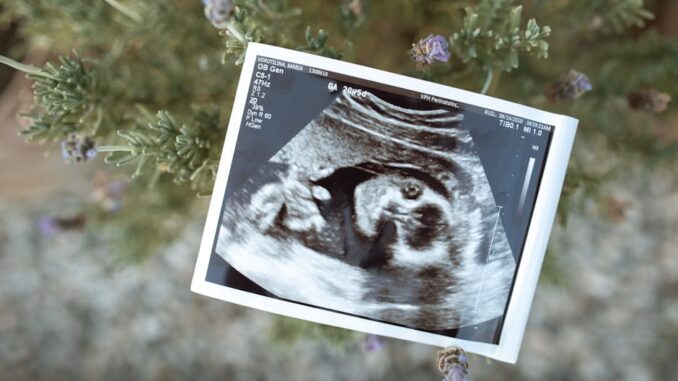
Summary
This article explores the groundbreaking use of AI in IVF, focusing on how it enhances success rates. It delves into AI’s role in follicle size analysis, personalized treatment plans, and improved embryo selection, marking a new era for reproductive medicine. The integration of AI promises higher success rates, personalized treatments, and ultimately, more babies born through IVF.
Healthcare data growth can be overwhelming scale effortlessly with TrueNAS by Esdebe.
** Main Story**
Okay, so IVF has been a game-changer for couples facing fertility struggles, right? But now, it’s like AI is joining the party, and it’s about to get even more interesting. We’re talking about a real revolution in how IVF is done, potentially leading to much better success rates. It’s not just a small tweak, it’s a whole new approach, using data in a way we couldn’t before.
Think about it: AI can chew through massive amounts of data to really personalize treatments. It’s about making every step count, and it all starts with…
AI and Follicle Analysis: Timing is Everything
So, you know how important timing is in IVF, especially when it comes to egg retrieval? It’s all about those follicles, the little sacs holding the eggs. Traditionally, doctors use ultrasound to measure them, trying to pinpoint the perfect moment for the “trigger” injection. If they don’t get it right, the chances of egg retrieval can be affected.
But AI? AI can analyze follicle data with incredible precision, pinpointing the ideal time for that trigger. I read a study where they found that when the trigger was given when follicles were within a specific size range – like, 13-18mm – they saw higher rates of mature eggs retrieved and, ultimately, more live births. It’s like, getting the timing spot on, so the eggs are collected at their prime. Really maximizing your chances of success.
Personalized IVF: Tailoring the Approach
And that’s not all; AI can personalize treatment plans too. There’s so much data generated during IVF – hormone levels, embryo development, you name it. It’s nearly impossible for any one human to consider every single factor in the way AI can. It’s hard to even know where to start, am I right?
But AI is brilliant at spotting patterns and insights that we humans would probably miss. For example, it can consider all this data and create individualized treatment strategies for each patient. This means optimized medication dosages, perfect procedure timing, and better embryo selection. The result? A significantly higher chance of a successful pregnancy. In essence, it’s a far more efficient and targeted plan.
Embryo Selection: Picking the Best
Then there’s embryo selection. Choosing the healthiest embryo for transfer is super crucial. AI is changing this by giving us a more accurate way to assess embryo quality, which really matters. I mean, how often have you second guessed your judgment of something?
AI algorithms can analyze images and videos of embryos, spotting subtle traits that indicate viability and the potential for successful implantation. This AI analysis goes beyond just looking at embryos under a microscope, you know? It helps doctors pick the embryo with the best shot at developing into a healthy pregnancy. This obviously lowers the number of IVF cycles you might need, ultimately increases your odds of a positive result.
The Road Ahead
Honestly, seeing AI being used in IVF is pretty remarkable. It’s not a magic wand, of course, but it’s a seriously powerful tool. It helps us do what we already do, only better. Plus, it’s giving so many couples a renewed sense of hope. Thinking about the future and all these innovations, it’s really exciting where it’s headed. I mean, who knows what breakthroughs are just around the corner?


The potential for AI to personalize treatment plans by analyzing hormone levels and embryo development data could be expanded by incorporating genetic screening results to further refine embryo selection and improve implantation success.
That’s a fantastic point! Integrating genetic screening results with AI’s analysis of hormone levels and embryo development could definitely take personalized treatment plans to the next level. It would provide even more data for informed decision-making, potentially leading to even better outcomes in embryo selection and implantation. Thanks for sharing your insights!
Editor: MedTechNews.Uk
Thank you to our Sponsor Esdebe
AI optimizing follicle analysis – so, no more blaming the doctor for a ‘bad egg day’? Seriously though, the precision sounds incredible. Does this mean we’ll see a shift in the required skill sets for embryologists, focusing more on AI interpretation than traditional methods?
Great question! It’s likely we’ll see embryologists needing to become adept at interpreting AI outputs and integrating that analysis into their existing knowledge base. The human element of patient care and nuanced decision-making will still be crucial, but complemented by AI precision. Exciting times ahead!
Editor: MedTechNews.Uk
Thank you to our Sponsor Esdebe
The enhanced precision in follicle analysis is certainly promising. Further studies exploring the integration of AI with non-invasive biomarkers could refine embryo selection even more, potentially identifying viable embryos with greater accuracy, and thus improving overall IVF success.
That’s an excellent point! Exploring AI integration with non-invasive biomarkers could indeed refine embryo selection even further. Imagine the possibilities of combining AI-driven follicle analysis with biomarker data for a more comprehensive assessment! Further research in this area is definitely something to look forward to. Thanks for sharing your perspective!
Editor: MedTechNews.Uk
Thank you to our Sponsor Esdebe
AI’s picking the best embryos? Does that mean fewer twins, or are we just getting ready for super-babies with optimized coding from day one? Asking for a friend who may or may not be designing tiny superhero capes.